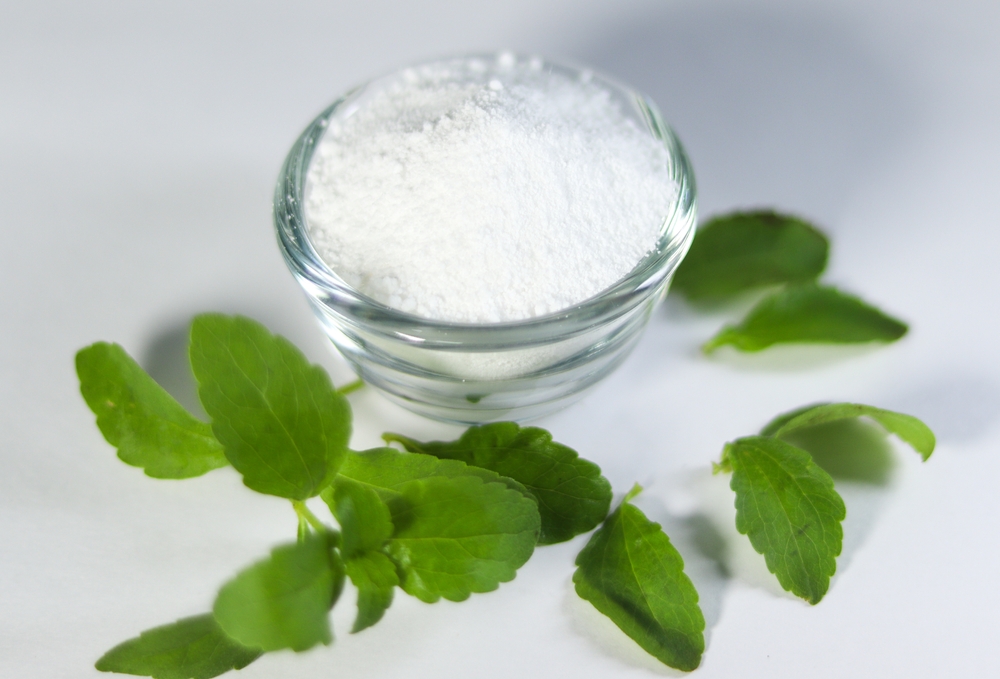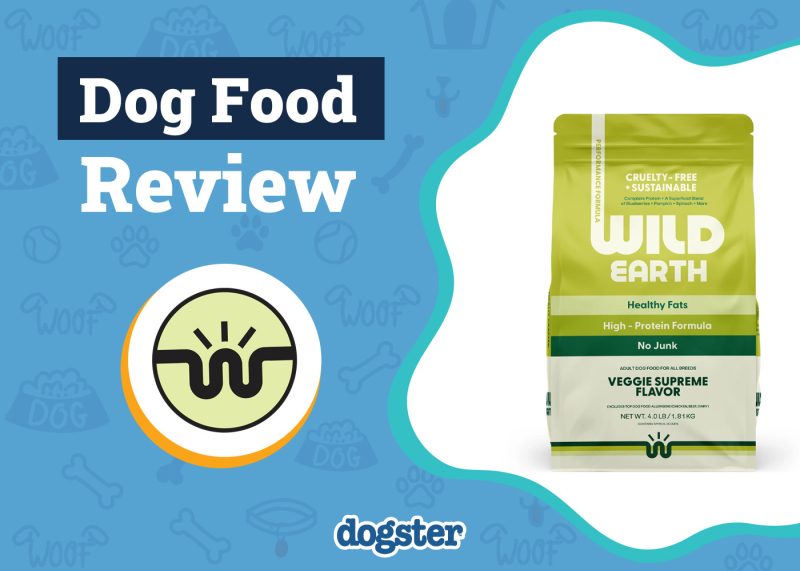In this article
Most of us know that sugar is only allowable for dogs in small quantities, but the diverse sugar substitutes available today can leave many unsure about which sweet additives are safe. Since they’re low- or no-calorie alternatives that don’t affect blood sugar to the same degree, they undoubtedly seem like a better alternative to offer our dogs some sweetness. However, even “naturally derived” sweeteners like stevia, while not toxic to dogs, can still be problematic when dogs eat too much.
While some sweeteners can cause mild agitation, others can be severely hazardous to dogs. Owners must understand and appreciate the differences to ensure their pets’ short and long-term health.
If you are wondering whether your dog is at risk when they get into one of your low-calorie treats, we’ll explain why stevia isn’t the worst ingredient your dog can eat but also not one you should let them enjoy frequently.

Can Dogs Eat Stevia?
Stevia is derived from the Stevia rebaudiana plant native to South America. Although you shouldn’t make stevia, sugar, or other sugar substitutes part of your dog’s standard diet, you don’t have to worry if they accidentally ingest small amounts of stevia. The steviol glycosides in commercial stevia sweeteners are non-toxic to dogs, and the FDA labels them as “Generally Recognized as Safe.”
What Is Stevia?
Stevia is a flowering plant in the aster family native to Paraguay and other hot, humid South American regions. Stevia rebaudiana is the particular plant that the sweetener is extracted from.
The stevia we use to flavor our drinks, baked goods, and other parts of our daily diets consists of highly refined compounds in the leaves called steviol glycosides. The most common steviol glycosides in various branded stevia extracts are rebaudioside A and stevioside.
The final product is 250–350 times sweeter than sugar, so you only need a small amount for the desired flavoring. Using a small portion is better because steviol glycosides can present an off-putting bitter and metallic aftertaste.

Drawbacks to Stevia for Dogs
In excessive amounts, stevia can cause mild gastrointestinal upset. Many stevia sweeteners balance the sweetness with dextrose and other sugars or sugar alcohols, like erythritol. Because dogs don’t absorb many of these easily in the intestines, they can draw water into the gut, causing osmotic diarrhea. Other signs may occur, including nausea, abdominal pain, or vomiting.
The diarrhea is temporary and will subside as the dog passes the offending compounds. If your dog shows signs, monitor their behavior and provide fresh water to ensure they stay hydrated. Fortunately, dogs need to ingest a substantial amount of stevia to show signs, so yours will most likely not have issues if they only enjoyed a taste of food containing the sweetener.
Allergic reactions may also be possible with any food stuff so monitor for any changes in your dog’s health after eating stevia.
Benefits of Stevia
Stevia is non-caloric and a wise choice for anyone worried about obesity or dental health. In humans it also boasts apparent anti-diabetic, anti-inflammatory, and antioxidant properties. Among sweeteners, it reduces the chances of some cancers, obesity, dental disease and other common diseases. In humans and dogs, stevia has shown antihypertensive benefits.
At present stevia doesn’t have any clinical uses to treat illness in dogs and so you should consult your veterinarian before introducing it into your dog’s diet.
If you need to speak with a vet but can't get to one, head over to PangoVet. It's our online service where you can talk to a vet online and get the personalized advice you need for your pet — all at an affordable price!

Which Sweeteners Are Hazardous to Dogs?
Generally, dogs tolerate artificial and natural non-caloric sweeteners in small amounts. Aspartame, erythritol, saccharin, and sucralose are non-toxic to dogs. They can cause stomach issues in dogs if they eat too much, but most pass through a dog’s system without causing severe issues.
Xylitol is the exception. Though xylitol is safe and, to an extent, beneficial for humans, xylitol is highly toxic to dogs, even in the tiniest amounts.
Signs of Xylitol Poisoning
Xylitol generates extreme spikes in insulin released into the blood. Vomiting may occur with rapid blood sugar drops occurring within 1–2 hours after ingestion. Dogs experience signs of hypoglycaemia including lethargy, unco-ordinated movements, seizures, and collapse.
Higher amounts of xylitol can elevate liver enzyme activity after 12–24 hours, due to liver damage. In rare cases, dogs can develop bleeding disorders. Hypoglycemia can occur in amounts as low as 0.1 g/kg body weight (~¼ teaspoon for a 22-pound dog) and liver failure from 0.5 g/kg (~1 ¼ tsp for a 22-pound dog).
Xylitol’s severe toxicity can be consequential when feeding a dog their favorite human treats like peanut butter or Greek yogurt. Owners must always check labels when giving a dog anything that isn’t sold as dog food, particularly when it features marketing terms like “sugar-free” or “no added sugar.” Care needs to be taken when reading labels as xylitol can be listed by alternative names such as birch sugar or birch bark extract.


Conclusion
While sweeteners are rarely something you should give to your dog, they’re also rare causes for concern. Except for xylitol, these substances are non-toxic and no more hazardous to a dog’s immediate health than plain sugar. Keep your stevia inaccessible to your dog, but don’t worry too much if they happen to grab a tiny taste here and there.
Featured Image Credit: TatianaMishina, Shutterstock





















